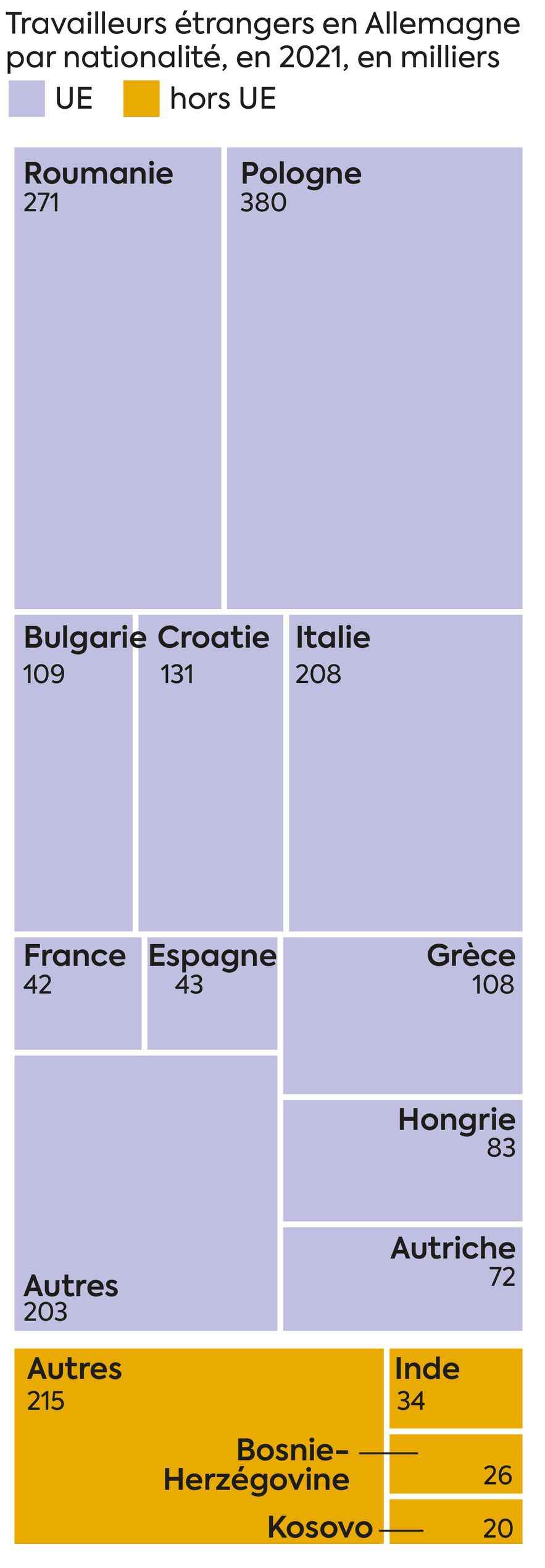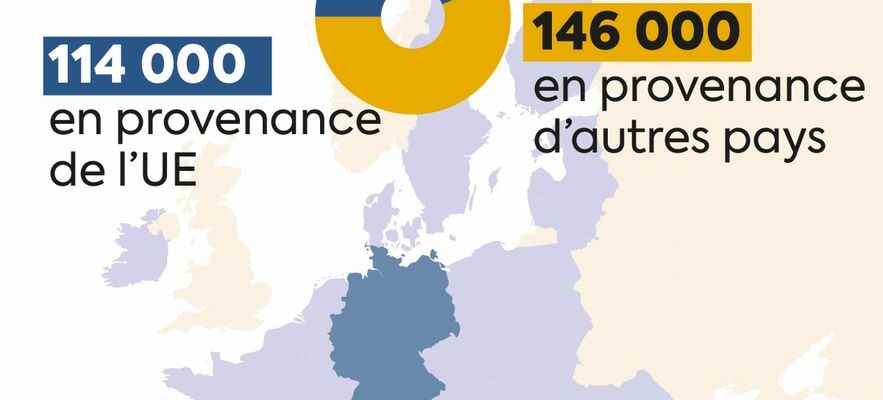With two million vacancies currently and seven million expected by 2035, Germany can no longer count on a hypothetical recovery in its birth rate or continue to draw on the job market in the countries of the European Union. (EU). He needs to recruit even further afield, on the other continents of the planet. “For many companies, the search for qualified labor has become an existential question”, explained Hubertus Heil, the Social Democratic (SPD) Minister for Labor presenting, on 30 November last, the main points of the new immigration lawFachkräfteeinwanderungsgesetz) which must be voted on by the end of March. “We have the objective of putting in place the most modern legislation in Europe to compete with other countries which are also looking for talent abroad,” he summed up.
The aim is to make Germany more attractive to foreign workers. “It is an illusion to think that everyone wants to come to Germany. We must no longer discourage candidates but convince them to come to us”, insisted the minister. After abolishing the “national preference” in hiring, the Olaf Scholz government wants to remove the obstacles to the recruitment of qualified personnel. “We are going to make the selection criteria more flexible and simplify the administrative procedures”, explained Hubertus Heil. Thus, candidates will no longer have to learn German before their arrival, but they will be able to do so on site. Above all: candidates from third countries will no longer need to present an employment contract before settling in the territory.
A points system, based on the Canadian model, will speed up procedures based on qualifications, level of German, professional experience, “relationship to Germany” and age. “Our law will be the most liberal in Europe”, welcomed the Ecologist Minister of Economy and Climate, who wants to triple the pace of investment in renewables. Robert Habeck is aware that the success of his energy transition plan will not depend on investors or the technological skills of his country, but on a sufficient workforce.
Infographics
© / Dario Ingiusto / L’Express
400,000 immigrants needed every year
German companies have been calling for easing for years. “Germany has never had a good reputation as a host country”, regrets the president of the Chamber of Arts and Crafts, Hans Peter Wollseifer, who wants the foreigners’ administration to be transformed into a “welcome center”. . According to a daily poll Frankfurter Allgemeine Zeitung with a dozen companies in the DAX, the benchmark index for the largest companies on the Frankfurt Stock Exchange, German bosses are demanding even more flexibility in the criteria. “It’s a good start,” said Siemens Healthineers (medical equipment). The Federal Employment Agency (BA) estimates the need for 400,000 additional immigrants per year to maintain the level of the current labor market.
The prospect of being naturalized more easily and quickly can indeed contribute to increasing the attractiveness of Germany. The Ministry of the Interior is taking part in this recruitment offensive with its reform of the citizenship law (Staatsangehörigkeitsrecht) which will allow foreigners to obtain German nationality after five years compared to eight today. This period will be reduced to three years for all people who have shown good will for their integration: good level of German, good grades, voluntary commitment in associative work, etc.
Even the unions welcome the relaxation of immigration rules: “It is the whole of society that will benefit from the arrival of these qualified personnel”, judged Jörg Hofmann, the president of the large metallurgy union, IG Metall. For the Germans, it is also the only way to save their pay-as-you-go social system. Hubertus Heil reminded his fellow citizens that the law was made for the future of Germany: “It is an insurance for the prosperity of our country.”

Infographics
© / Dario Ingiusto / L’Express
